Preview
Having taken January off, Spirit Journal is back with a lot of news to share! This issue announces two important new programs: Registration will start soon for this summer’s 2019 Eight-Day Intensive/Post Intensive Retreat and for the 2019-2020 Living Flame program. Have a look at the preliminary information on each of these programs and save the dates!
We also share information about the next Living Wisdom workshop coming up March 9 with Rabbi Rami Shapiro, describe two new part-time employment opportunities with Contemplative Outreach Chicago, and share a poem by Alan Krema inspired by the Living Wisdom Program.
This month also features the first installment of a very interesting new long-form piece of writing we think you’ll enjoy: Pluck the Day . . . for It Is Ripe, by Jeff Ediger. Finally, we provide information about several additional contemplative activities that are coming up soon and may be of interest, along with Insights from Cynthia Bourgeault, Milarepa, Richard Rohr, and Miribai Starr.
As always, we invite you to let us know what you think about Spirit Journal – and start your side of the conversation – by emailing the editor at the address provided at the end of the newsletter. We look forward to hearing from you!
Two Important Program Announcements: Save the Dates!
Contemplative Outreach Chicago announces two new programs that will take place later in 2019 through 2020:
Eight-Day Intensive/Post-Intensive Retreat, July 14-21
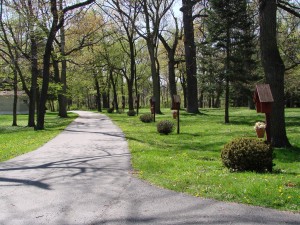
These retreats will take place simultaneously at the lovely Portiuncula Center in Frankfurt, Illinois.
The Intensive Retreat provides an opportunity to deepen the practice of Centering Prayer in an atmosphere of profound silence and community support. There are up to six 30-minute Centering Prayer periods daily. This prayer is supported with viewing a selection of the Spiritual Journey video series by Fr. Thomas Keating. Private interviews with the retreat guides can be scheduled.
The Post-Intensive Retreat provides an opportunity to deepen the practice of Centering Prayer and Lectio Divina in an atmosphere of profound silence and community support. There are up to seven 30-minute periods of Centering Prayer daily. Participants observe Sacred Silence four days during the retreat. Previous participation in an eight- or 10-Day Intensive Retreat is a prerequisite for the Post-Intensive.
More information and an opportunity to register will be available on our website soon.
The Living Flame Program, Starting October 12
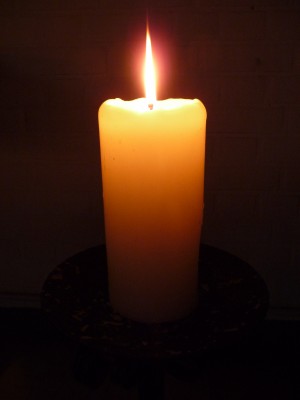 This extraordinary national program was last offered here in Chicago more than ten years ago. The Living Flame includes seven full-day offerings of in-depth spiritual study presented over a seven to nine month period by commissioned presenters from the various Contemplative Outreach Service Teams.
This extraordinary national program was last offered here in Chicago more than ten years ago. The Living Flame includes seven full-day offerings of in-depth spiritual study presented over a seven to nine month period by commissioned presenters from the various Contemplative Outreach Service Teams.
Designed to teach the vital conceptual background needed to support a faithful practice of Centering Prayer, the program also offers encouragement and support in a small community setting, heightens the awareness of the purification process, helps discern when psychological skills can be helpful tools, and provides the opportunity to give and receive spiritual companionship.
The Living Flame workshops will take place at Mary Seat of Wisdom Church in Park Ridge. Specific dates are:
In 2019
October 12 Deepening Our Centering Prayer Practice
November 9 Lectio Divina
December 7 The Human Condition
In 2020
February 1 Divine Therapy
March 7 The Dark Night of Sense
March 28 The Welcoming Prayer Practice
April 18 The Discernment Practice
More information and an opportunity to register will be available on our website later this month.
Living Wisdom Program Continues March 9: “The Wisdom of Sophia” with Rabbi Rami Shapiro
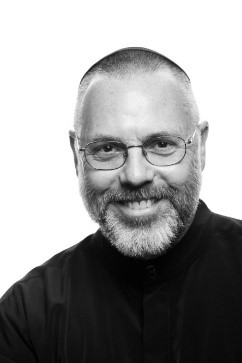 Our ongoing series of Living Wisdom workshops continues next month at the Tau Center in Wheaton. The program’s vision is to deepen the contemplative wisdom in each participant. All are welcome – if you have not attended the first two workshops, that’s not a problem. Please join us for either or both of the remaining sessions. (The 2019 series concludes April 13 with a session on Cultivating a Listening Heart, led by Jeff Ediger.)
Our ongoing series of Living Wisdom workshops continues next month at the Tau Center in Wheaton. The program’s vision is to deepen the contemplative wisdom in each participant. All are welcome – if you have not attended the first two workshops, that’s not a problem. Please join us for either or both of the remaining sessions. (The 2019 series concludes April 13 with a session on Cultivating a Listening Heart, led by Jeff Ediger.)
During the March 9 workshop, drawing on the biblical books of Psalms, Proverbs, Song of Songs, Ecclesiastes, Job, Sirach and the Wisdom of Solomon, we will allow ourselves to be directly addressed by Wisdom, and to respond to Her teachings within the facts of our everyday lives.
Blending contemplative study with chanting and Passage Meditation, we will explore four questions: Who is Lady Wisdom? Where Can She Be Found? What Does She Teach? and How May We Live Her Teachings?
This is not a workshop about Wisdom but a deep encounter with and embracing of Wisdom. No prior knowledge of Hebrew, Greek, or even the Bible is necessary. All you need is a willingness to embrace and be embraced by She who is the source of all.
Part-Time Employment Opportunities with Contemplative Outreach Chicago
Our organization’s growth has created two new opportunities:
Logistics/Operations – We are in need of someone to help us organize all the aspects of our growing list of events. Contemplative Outreach Chicago offers one-day workshops, weekend retreats, an eight- day retreat, and various other events.
We would like to have help booking and organizing the venues/facilities, managing registration (which is done mostly online, but with some mail-in forms), preparing nametags, arranging for catering, and A/V equipment, etc.
It would be a big help to have this person attend and work at the events, as much as is practical, understanding that this won’t always be possible.
Webmaster – We also need a person with excellent professional skills in web design and site management to be responsible for the technical side of our online presence. We are currently getting ready to adopt a new theme for the website, so this is a good time to get involved and understand and improve everything we do online.
These positions are both part-time and we are not capable of “acting as an employer.” Instead, we intend to contract for these services with freelancers or small businesses. We are most interested in working with people who share our disposition toward the contemplative dimension of daily living. For further information on either opportunity, please contact coordinator@centeringprayerchicago.org.
A Poem Inspired by the Welcoming Prayer Program
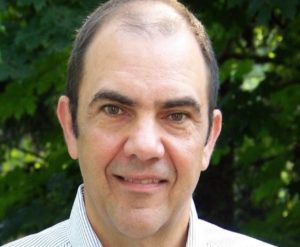 by Alan Krema
by Alan Krema
The following is a prayer/poem I wrote for our workshop day on the Welcoming Prayer Practice. It may not be very good, but it did stir from within me. I will use it again at the upcoming Winter Weekend retreat on the Welcoming Prayer Practice (which has sold out). I thought perhaps it would be worth sharing with our newsletter readers, as well.
The prayer in response to the scripture of John 3:1-8.
May I be grateful for the life
I have been granted,
to travel on the surface
of the sea of my life.
May I be present to the still waters
of my mind.
Then as the Spirit breathes
may I discern the vision
of the divine breath
as it is mirrored in my
undisturbed surface.
May I then be so moved
to set my sail to
the direction of the Holy Breath,
without knowing where or when or how.
In my journey along this
Holy breeze,
may I turn toward the
trauma, the pain, and the grief
that is my natural happening.
May I welcome my pain
and that of my neighbor.
As a lightning bolt approaches a tree,
its thousand leaves
turn and stand to face it.
May I welcome my calling
to stand and be born of the Spirit.
May I not see in my brother or in my own pain
an unwelcome stranger,
For, if so, it will be Christ who will be to me unwelcome.
May I turn to and welcome.
May I relax into the push of the womb
of the Spirit
Who bids me welcome into my
Great Beloved.
Other Upcoming Events, Retreats, and Conferences
Here are some additional contemplative activities that may be of interest:
Ongoing Centering Prayer “11th Step” Program – Chicago
In AA 12-step programs, the 11th step is making a personal effort to get in touch with a Higher Power, however one understands it. Increasingly, people in 12-Step programs are deepening their relationships with their Higher Power using the method of Centering Prayer.
Here in the Chicago area, an ongoing Centering Prayer-based 11th step group meets on Fridays at 6:45pm in conference room “C” on the 7th floor of the Community First Medical Center, 5645 W. Addison Street, Chicago. For further information on this program, please contact Philip Lo Dolce — stuffer1@ameritech.net.)
Dark Night of the Soul Retreat March 8-10 – Near St. Louis
Susan Komis will lead this weekend retreat exploring the spiritual journey of St. John of the Cross at the Marianist Retreat and Conference Center near St. Louis. How do we find words for a “dark” experience…. or is it really dark? In this weekend retreat, St. John of the Cross charts the fundamental journey of the human spirit where no words can satisfy. The dark night is a metaphor and often misunderstood. The Night of Sense and Night of Spirit provide an interior landscape of the soul that presents the human experience of being wounded and simultaneously, the experience of being healed by the divine physician. The “dark nights” are an amazing story of human development aided by grace as told in these images and provides inspired insight into our contemporary contemplative spiritual journey.
Retreat leader Susan Komis is the former Director of Chapter Programs & Services of Contemplative Outreach and continues to serve as a commissioned presenter and retreat director. She is a Pastoral Minister and has been active in adult faith development, spiritual direction and inter-spiritual dialogue. The Dark Night of the Soul is one of her favorite topics in the contemplative dimension. Susan has offered this weekend event throughout the United States, Canada and the Dominican Republic. She resides in a suburb of St. Louis, Missouri, is married and the mother of adult children and grandchildren.
For further information and an opportunity to register, please click here.
Healing Gardens March Programs Include an Introductory Enneagram Workshop and Silent Saturdays
 Healing Gardens at Stonehill Farm invites you to enjoy two acres of perennial gardens in a quiet wooded setting in St. Charles. A growing list of contemplative activities take place at Healing Gardens, including the following:
Healing Gardens at Stonehill Farm invites you to enjoy two acres of perennial gardens in a quiet wooded setting in St. Charles. A growing list of contemplative activities take place at Healing Gardens, including the following:
Silent Saturday, March 23, 9:00am – noon
Level One Enneagram Workshop, Saturday March 30, 8:45am – 3:30pm
For more information and registration, please visit the Healing Gardens website.
Howard Thurman Retreat Day – Online Now through April 3
 The Shalem Institute offers this retreat online. Through audio teaching, guided meditation, reflection questions and invitations into silence, Lerita Coleman Brown invites you into intentional quiet space to reflect on the life and work of Howard Thurman, spiritual guide to Rev. Dr. Martin Luther King, Jr.
The Shalem Institute offers this retreat online. Through audio teaching, guided meditation, reflection questions and invitations into silence, Lerita Coleman Brown invites you into intentional quiet space to reflect on the life and work of Howard Thurman, spiritual guide to Rev. Dr. Martin Luther King, Jr.
Shalem retreat day leader Lerita Coleman Brown is featured in the PBS series, Backs Against the Wall: The Howard Thurman Story, which airs this month. Consider watching the PBS documentary series while taking the online retreat day! Watch the trailer here.
Further information and registration for the retreat are available at the Shalem Institute website.
Pluck the Day . . . for it is Ripe!
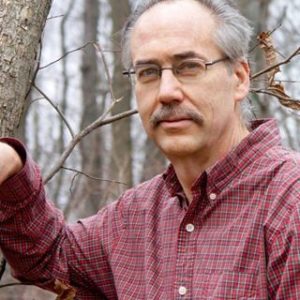 by Jeff Ediger
by Jeff Ediger
Jeff Ediger has been thinking a lot about time, and in this initial chapter of a new long-form piece for Spirit Journal, he introduces some basic concepts about time, the ways in which we use and misuse it, and how to identify “the right time” to take any action. We suggest that the time you spend reading and thinking about this first installment will be time well-spent!
Chapter 1
It was Linda’s first gallery opening. Never mind that the gallery was a modest space in a small town, many corn and soybean fields removed from the Urbana-Champaign campus. This would be her fledgling flight from the University of Illinois Art Department nest where she was studying for her Master of Fine Arts degree. Her first step, then, towards recognition as a full-fledged artist rather than merely a student.
I had met Linda while I, too, was a graduate student at the U of I. We had become good friends among a circle of art-loving friends. So I was eager to support her “opening.”
On the day of the event she, of course, had to be at the gallery early. So she asked me if I would give a friend of hers, another art student, a ride. A bit surprised that she had asked me rather than one of her colleagues who was better acquainted with this person, I was nevertheless happy to assist.
A number of years later, after we had both graduated and moved on to the next big thing, a light bulb unexpectedly lit up in my head one arbitrary day. So I called Linda and asked, “Hey, were you trying to match me up with that friend of yours? I think her name was Sarah.” “Well…you’re a bit late!,” she gasped into the receiver. “She’s married and has three kids!”
Insights
Indeed, how do we put on the mind of Christ? How do we see through his eyes? How do we feel through his heart? How do we learn to respond to the world with that same wholeness and healing love? That’s what Christian orthodoxy really is all about. It’s not about right belief; it’s about right practice.
– Cynthia Bourgeault
All meditation must begin with arousing deep compassion. Whatever one does must emerge from an attitude of love and benefiting others.
– Milarepa
You wouldn’t guess this from the official creeds but, after all is said and done, doing is more important than believing. Jesus was clearly more concerned with what Buddhists call “right action” (“orthopraxy” in Christianity) than with right saying or right thinking . . . Humanity now needs a Jesus who is historical, relevant for real life, physical and concrete, like we are. A Jesus whose life can save us even more than his death does. A Jesus we can imitate in practical ways and who sets the bar for what it means to be fully human.
– Richard Rohr
Our challenge is not only to recognize the face of the Creator in the beauty of creation, but also to serve the Divine by taking care of the land, the air, and all beings that dwell with us here.
– Miribai Starr
Your Turn
You are always invited to write in to comment on or add to any of the items in Spirit Journal. Let us know if you are aware of an upcoming event you think others should know about, or send us an inspirational quote you’d like to share, or information about a book, website, podcast, or video you recommend. You can contribute by emailing the newsletter editor at news@centeringprayerchicago.org.